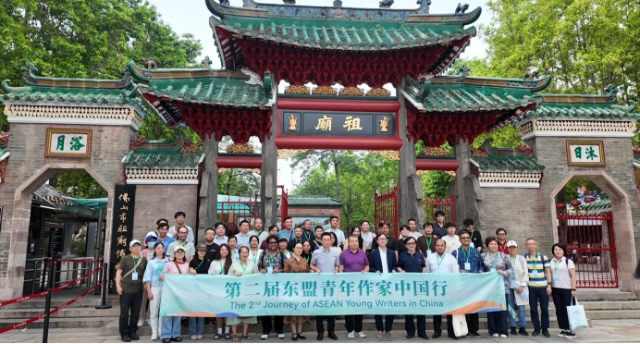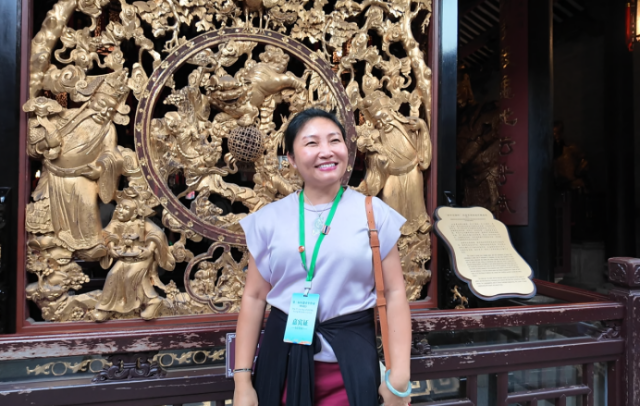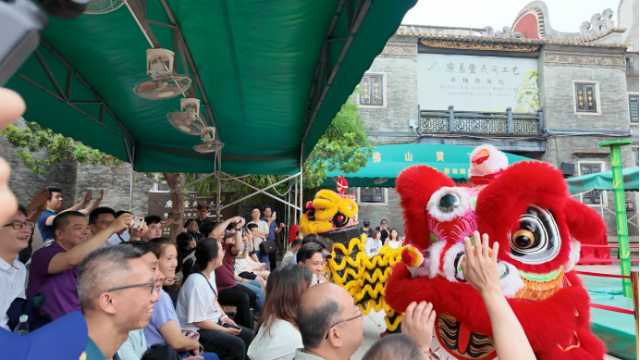Starting from May 26, the Guangdong leg of the 2nd Journey of ASEAN Young Writers in China, a collaborative initiative by the International Department of the China Writers Association and the Guangdong Provincial Writers Association, united 25 ASEAN and 20 Chinese writers.
Centered in Foshan, the visit offered a deep dive into the region's cultural landmarks, fostering cross-border literary dialogue as the delegates visited the Ancestral Temple, home to the Huang Feihong Memorial Hall, and the historic Wanfu Cantonese Opera Stage.

Delegates arrive at the Ancestral Temple in Foshan on the 2nd Journey of ASEAN Young Writers in China
Thai poet and novelist Artyasit Srisuwan, whose works have been translated into multiple languages, highlighted the value of cultural juxtaposition. "I think young Chinese writers and young Thai writers will collaborate to write about the cultures of China and Thailand together," he said, noting how Foshan's temples inspired his storytelling. "I use these sites to create new plots—seeing Chinese architecture and people becomes material for my characters."

Thai novelist Gassanee Thaisonthi takes pictures during her visit to the Ancestral Temple in Foshan
For Gassanee Thaisonthi, a Thai novelist and cultural strategist, Foshan's martial arts legacy left a vivid impression. "This is the hometown of Huang Feihong! Watching the lion dance was li hai (impressive)," she remarked. Emphasizing the program's significance, she added, "Exchanging views and perspectives with writers from different cultures sparks innovation. Together, we can create greater works."
Vietnamese translator Nguyen Le Chi, founder of Chibooks, a publishing and literary agency, underscored the irreplaceable role of firsthand experience. "Online information gives us a general idea, but real inspiration comes from meeting people and witnessing traditions firsthand," she said. "Events like this are challenging to organize, but essential—they bridge gaps that digital platforms cannot."

Delegates interact with the lion dance performers
The Foshan leg of the journey was highlighted by an introduction to the beautifully wood-carved Wanfu Stage, the oldest, most intact, and best-preserved opera stage in South China, dating back more than 300 years, in addition to the Huang Feihong Memorial Hall, which celebrates Foshan's martial arts ethos. Participants also observed vibrant lion dances and Cantonese opera, blending sensory immersion with literary discourse.
As the writers departed for Guangzhou, the consensus was clear: such exchanges are vital for nurturing a globally connected literary landscape. "Young writers must step out, interact, and absorb the world beyond screens," Nguyen urged. "Only then can our stories resonate with authenticity."
Reporter: Guo Zedong
Photo: Guo Zedong
Editor: Yuan Zixiang, James, Shen He
















